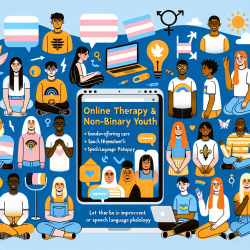In the ever-evolving field of online therapy, practitioners are continually seeking ways to enhance their skills and improve outcomes for their clients. A fascinating research article titled "Role of vaccine science diplomacy in low-middle-income countries for eradicating the vaccine-preventable diseases: Targeting the 'LAST MILE'" offers valuable insights that can be adapted to the field of online therapy.
Vaccine Science Diplomacy (VSD) involves collaborative efforts between nations to develop and distribute vaccines, transcending political and ideological boundaries for the greater good. This concept can be translated into the realm of online therapy, where collaboration and knowledge sharing are equally crucial.
Key Takeaways from the Research
1. Collaboration and Knowledge Sharing
The success of VSD hinges on collaboration and the sharing of knowledge across borders. For online therapy practitioners, this means actively participating in professional networks and communities. Engaging in forums, attending webinars, and collaborating on research projects can significantly enhance one's practice.
2. Leveraging Technology
Just as VSD utilizes cutting-edge technology to develop vaccines, online therapists should embrace the latest technological advancements. Utilizing teletherapy platforms, integrating AI tools for better client assessment, and staying updated with digital health trends can lead to more effective therapy sessions.
3. Addressing Accessibility
VSD aims to make vaccines accessible to all, regardless of socio-economic status. Similarly, online therapists should strive to make their services accessible to a broader audience. This could involve offering sliding scale fees, providing services in multiple languages, or using platforms that are accessible to individuals with disabilities.
Practical Steps for Practitioners
1. Join Professional Networks
Participate in professional organizations such as the American Telemedicine Association or the International Society for Mental Health Online. These platforms offer resources, forums, and conferences that can keep you updated on the latest in online therapy.
2. Embrace Continuing Education
Continuing education is vital. Enroll in courses that focus on the latest developments in online therapy, telehealth regulations, and new therapeutic techniques. Websites like Coursera, Udemy, and specialized platforms like Telehealth Certification Institute offer relevant courses.
3. Implement Feedback Mechanisms
Just as VSD relies on data and feedback for vaccine efficacy, online therapists should implement robust feedback mechanisms. Regularly solicit feedback from clients to improve service delivery and outcomes.
4. Collaborate on Research
Engage in research collaborations to contribute to the body of knowledge in online therapy. Partner with academic institutions or other practitioners to conduct studies and publish findings.
Encouraging Further Research
The research on VSD underscores the importance of continuous learning and adaptation. Online therapy practitioners should be encouraged to delve deeper into research, exploring how principles from various fields can be applied to enhance therapeutic practices. By fostering a culture of curiosity and innovation, practitioners can stay at the forefront of their field.
To read the original research paper, please follow this link: Role of vaccine science diplomacy in low-middle-income countries for eradicating the vaccine-preventable diseases: Targeting the “LAST MILE”.










